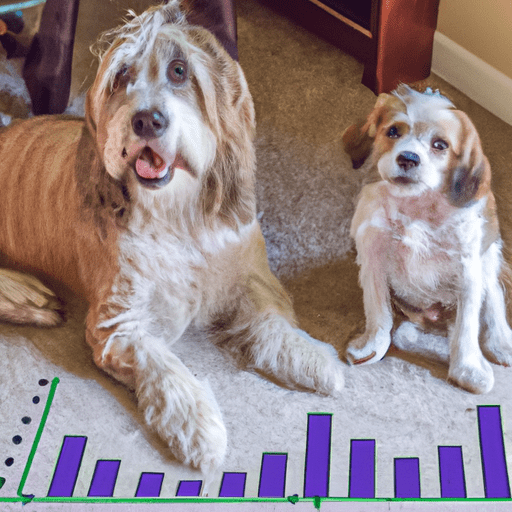If you’re a dog owner, you’ve probably asked yourself – when will my puppy stop being a puppy and become a full-grown dog? Understanding when a dog is considered fully grown is crucial for their health and development. This article will delve into this topic, explaining the factors that influence a dog’s growth, the different stages of a dog’s life, and how breed size impacts development.
Table of Contents
- Factors Influencing Dog Growth
- Stages of Dog Growth
- Breed Size and Dog Growth
- Frequently Asked Questions
Key Takeaways
- Dogs grow at different rates depending on their breed and size.
- Smaller breeds tend to reach maturity faster than larger breeds.
- It’s important to consider both physical and emotional maturity when determining if a dog is fully grown.
- Understanding your dog’s growth can help with proper nutrition and health care management.
Factors Influencing Dog Growth
Every dog is unique, and their growth can be influenced by several factors.
Genetics play a significant role in determining how big a dog will get and how quickly they will reach their full size. Some dogs are predisposed to be small or large, fast-growing or slow-growing, based on their genetic makeup.
Nutrition is another critical factor in a dog’s growth. Puppies require a diet rich in protein to support their rapid growth and development. Providing the right balance of nutrients can ensure they reach their full growth potential.
Regular exercise is also essential for a dog’s growth and development. Exercise helps build strong muscles and bones, and can help prevent obesity, which can hinder growth.
Information about these factors and more can be found in this comprehensive guide to dog growth.
Stages of Dog Growth
Knowing the different stages of a dog’s life can help you understand when they might be considered fully grown.
- Puppy Stage: This stage lasts until about six months of age. During this time, your puppy will grow rapidly and require a lot of care and attention.
- Adolescent Stage: This stage lasts from six months to two years. During this time, your dog will continue to grow but at a slower rate. Their behavior may also become more challenging as they test boundaries.
- Adult Stage: This stage typically begins around two years of age, but it can vary depending on the breed. This is when a dog is generally considered fully grown.
For more information on a dog’s life stages, visit OneTopDog’s guide to dog life stages.
Breed Size and Dog Growth
Breed size significantly impacts the rate at which a dog grows and matures.
Small breeds usually stop growing by 10 to 12 months of age.
Medium breeds typically reach their full size by 12 to 15 months of age.
Large breeds may continue to grow until they are two or even three years old.
For more specific information about your dog’s breed, OneTopDog’s breed guide is a valuable resource.
Frequently Asked Questions
1. When is a dog considered fully grown?
Most dogs are considered fully grown once they reach their adult stage, typically around two years old. However, this can vary greatly depending on the breed and individual dog.
2. Do male and female dogs grow at the same rate?
In general, male dogs tend to grow slightly faster and be slightly larger than females of the same breed.
3. How can I tell if my dog is still growing?
Vets often use weight as a guideline to determine if a dog is still growing. If your dog is gaining weight and their body is becoming more muscular, they are likely still growing.
4. Can a dog’s diet impact their growth?
Absolutely. Proper nutrition is crucial for a growing puppy. A diet deficient in essential nutrients can hinder a dog’s growth and development.
For more in-depth answers to these questions and others, OneTopDog’s FAQ section is a great resource.
In conclusion, understanding when a dog is considered fully grown can help you provide the best care possible for your furry friend. Remember, every dog is unique and grows at their own pace. Patience, proper nutrition, and regular veterinary care are key to ensuring your dog grows into a healthy, happy adult.



